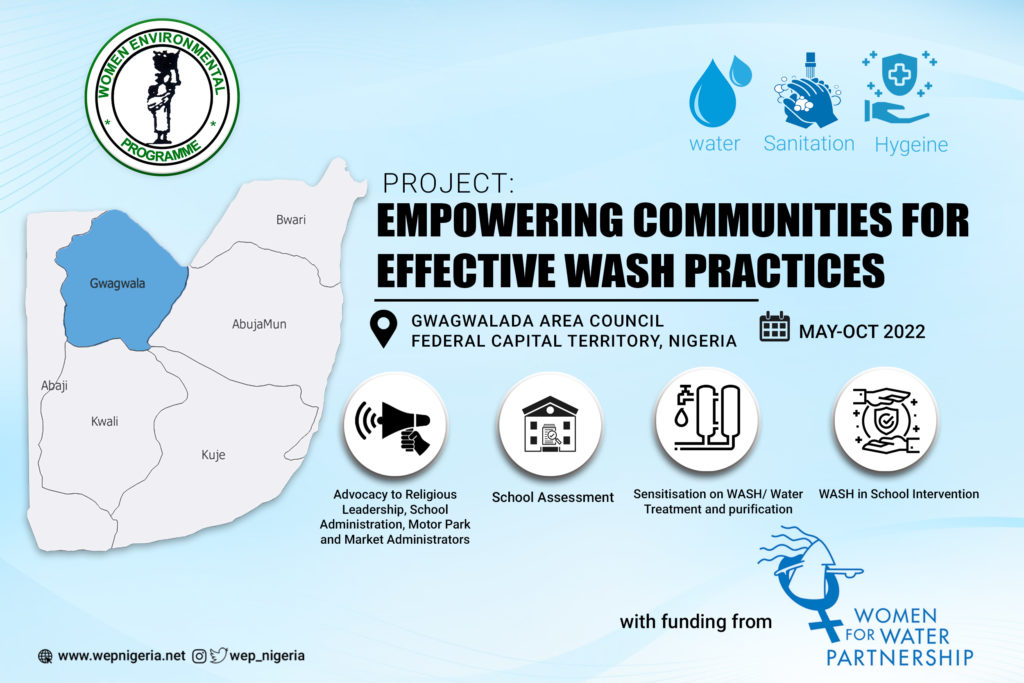
Empowering Communities for Effective WASH Practices in Gwagwalada LG, FCT Abuja
WASH in Schools’ is concerned with water supply, provision of sanitation and washing facilities along with hygiene education and promotion in schools. A school with adequate WASH services has a functional and reliable water system that provides safe, sufficient water for all needs of the school, especially for toilet use, hand-washing and drinking. It has a sufficient number of toilets for students and teachers and the toilets are private, safe, accessible, clean and separate for boys and girls. In addition, the school has several hand-washing stations, some located close to toilets to facilitate hand-washing after defecation, and others close to where food is prepared and eaten to facilitate hand-washing before handling food and before eating. Adequate WASH in schools service caters for the needs of the entire school population, including small children, girls of menstruation age, children with disabilities and staff. Further, it includes hygiene education in the school curriculum to impart basic knowledge. Finally, a complete WASH in schools package includes supplementary activities that aid translation of knowledge into lifelong practices, promote responsible use of facilities and pass on sound behaviours to families and communities. The overriding principle is that WASH in schools must be sustainable.
Values of WASH in Schools
Disease Prevention: Provision of safe water, toilets and improvement of hygiene practices is the most effective known method of preventing diarrhea diseases and worm infection
Educational Achievement: Poor WASH in schools affects children’s ability to learn in several Ways, Poor environmental conditions in the classroom also make both teaching and learning difficult, The effect of disease in teachers – impairing performance and increasing absenteeism – also has a direct impact on learning, and teachers’ work is made harder by the learning difficulties faced by schoolchildren. Dehydration caused by failure to drink sufficient amounts of water and increased physical activity, such as walking to school, reduces a child’s ability to learn.
Gender and Disability: Girls and boys, including those with disabilities, are affected in different ways by inadequate water, sanitation and hygiene conditions in schools and this contributes to unequal learning opportunities. For example, lack of adequate, separate private and secure toilets and washing facilities may discourage some parents from sending girls to school. In addition, a lack of adequate facilities for menstrual hygiene contributes to girls missing days at school and may even lead to girls dropping out of education altogether at puberty. A girl can miss 10% to 20% of her school days due to menses
The Wider Community: Children who have adequate water, sanitation and hygiene conditions at school are more able to integrate hygiene education into their daily lives, and are effective messengers and agents of change within their families and the wider community. Conversely, communities in which schoolchildren are exposed to disease risk because of inadequate water supply, sanitation and hygiene at school are themselves more at risk. Families bear the burden of their children’s illness due to bad conditions at school.
Life-long skills: The hygiene behaviours that children learn at school – made possible through a combination of hygiene education and suitable water, sanitation and hygiene-enabling facilities – are skills that they are likely to maintain as adults and pass on to their own children. What children learn and practice today in schools will be a norm in the society when these children become adults.
WASH in School Intervention
Forty (40), (four Head Girls, four Assistant Head Girls, four Female Health/Sanitation Prefects and four female teachers from 10 schools) will be trained on sanitation, hygiene, MHHM, production of reusable sanitary pads, production of soap & detergent and construction of tippy taps for proper hand washing.
Establishment of WASH Clubs in ten (10) schools: Establishing WASH clubs in schools will guarantee the sustainability of WASH practices that will be carried through generations of students and WASH practices will be extended to the society as well.


